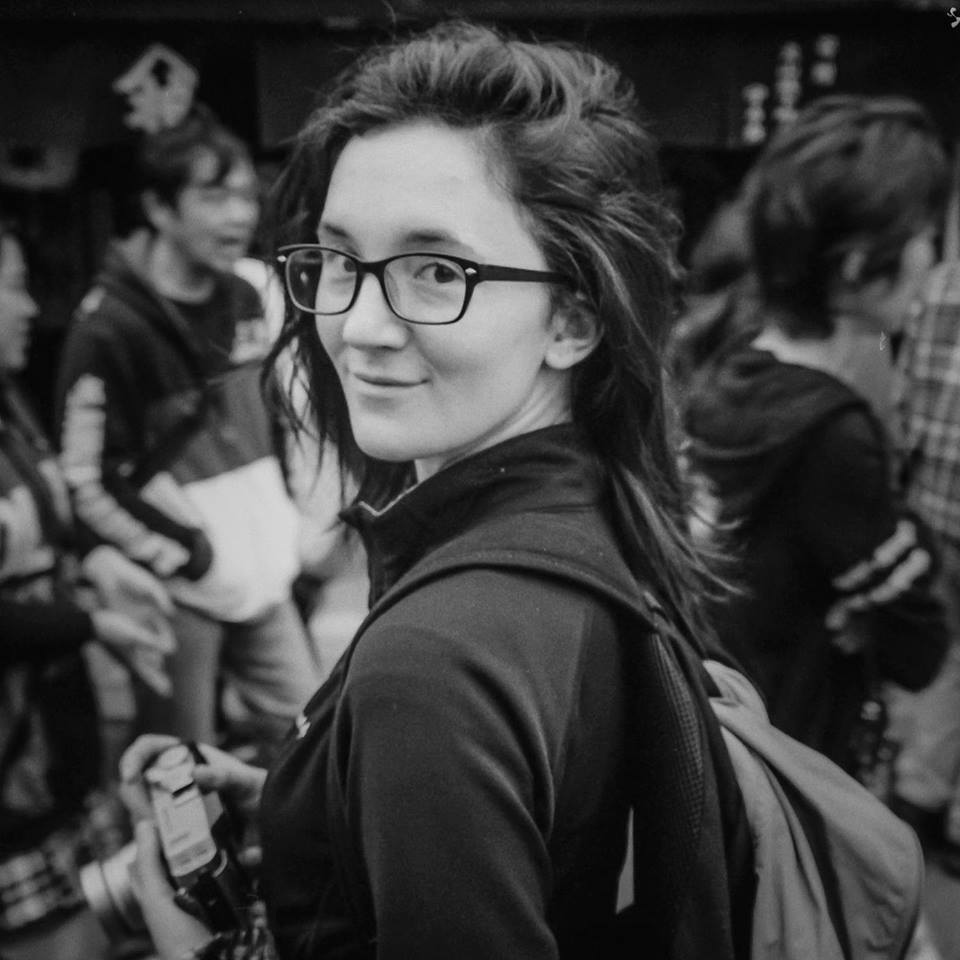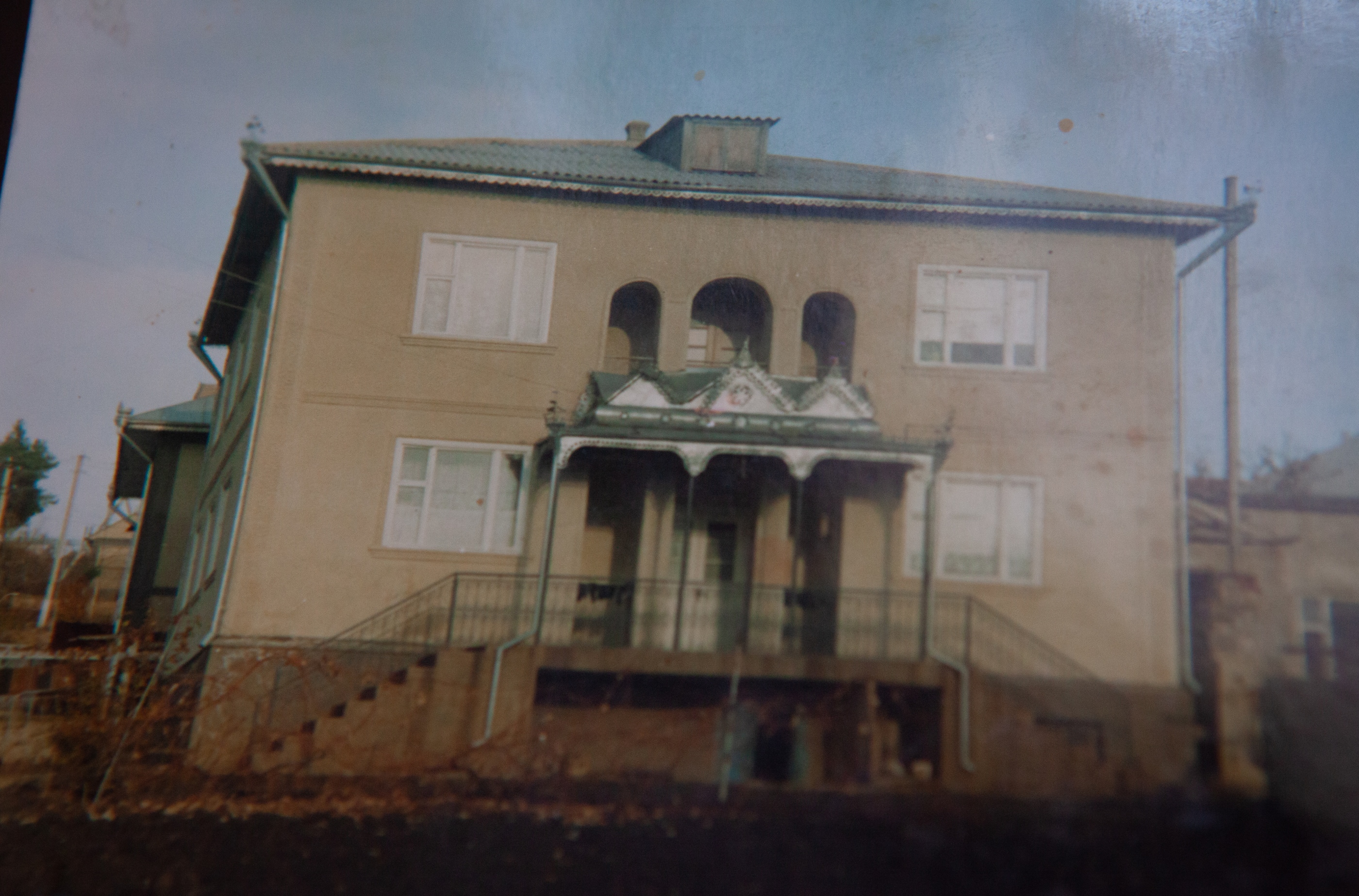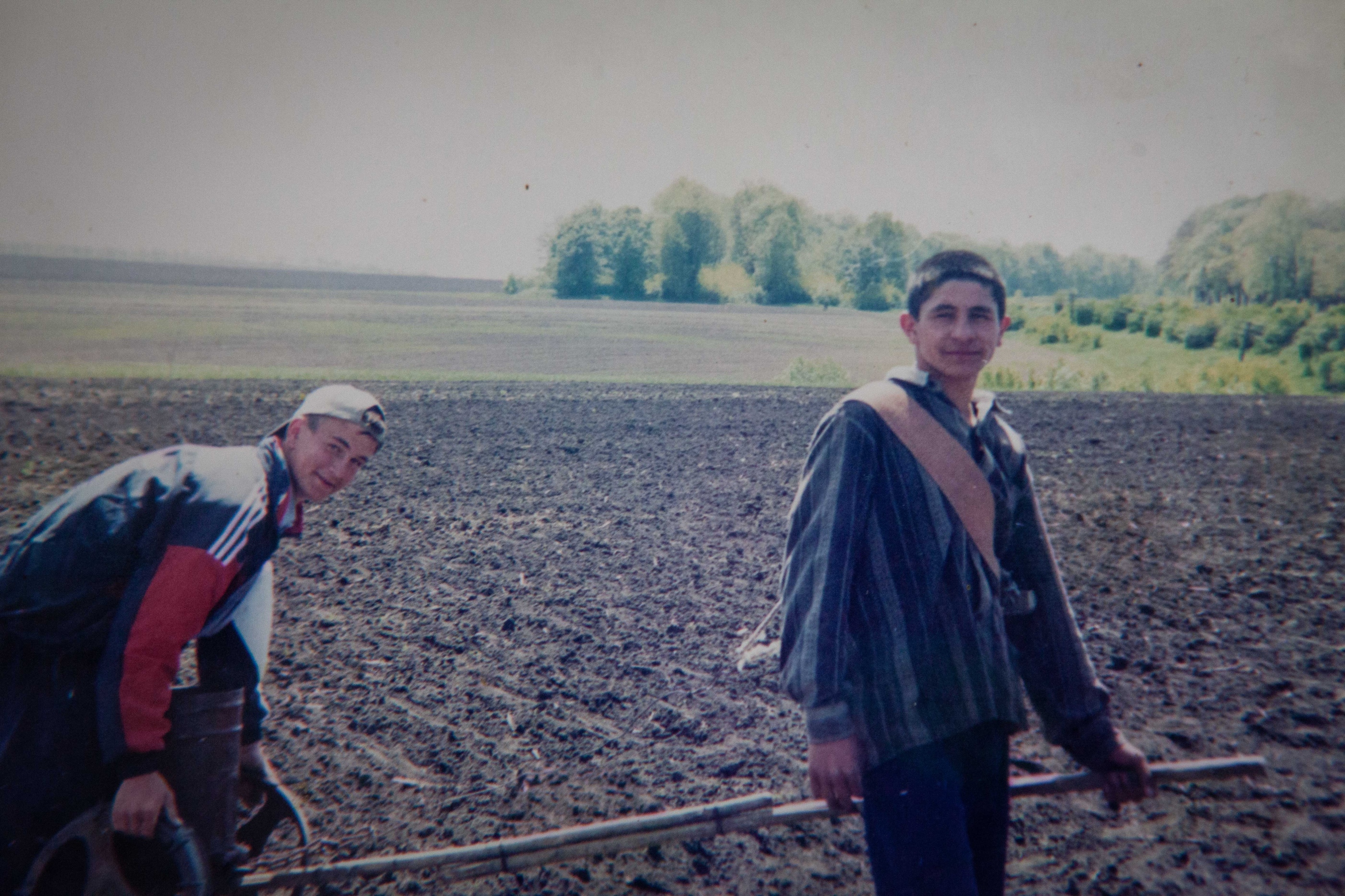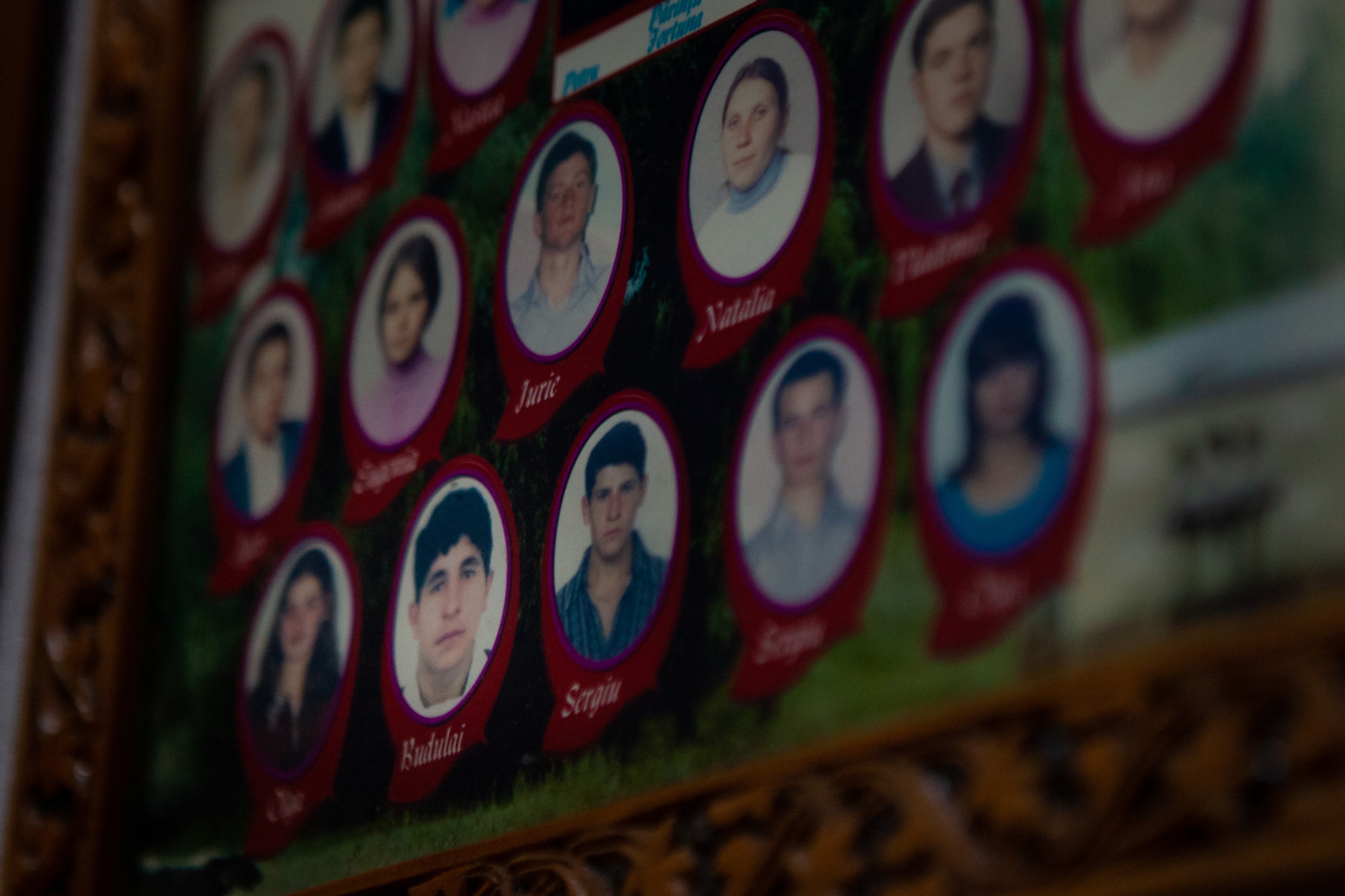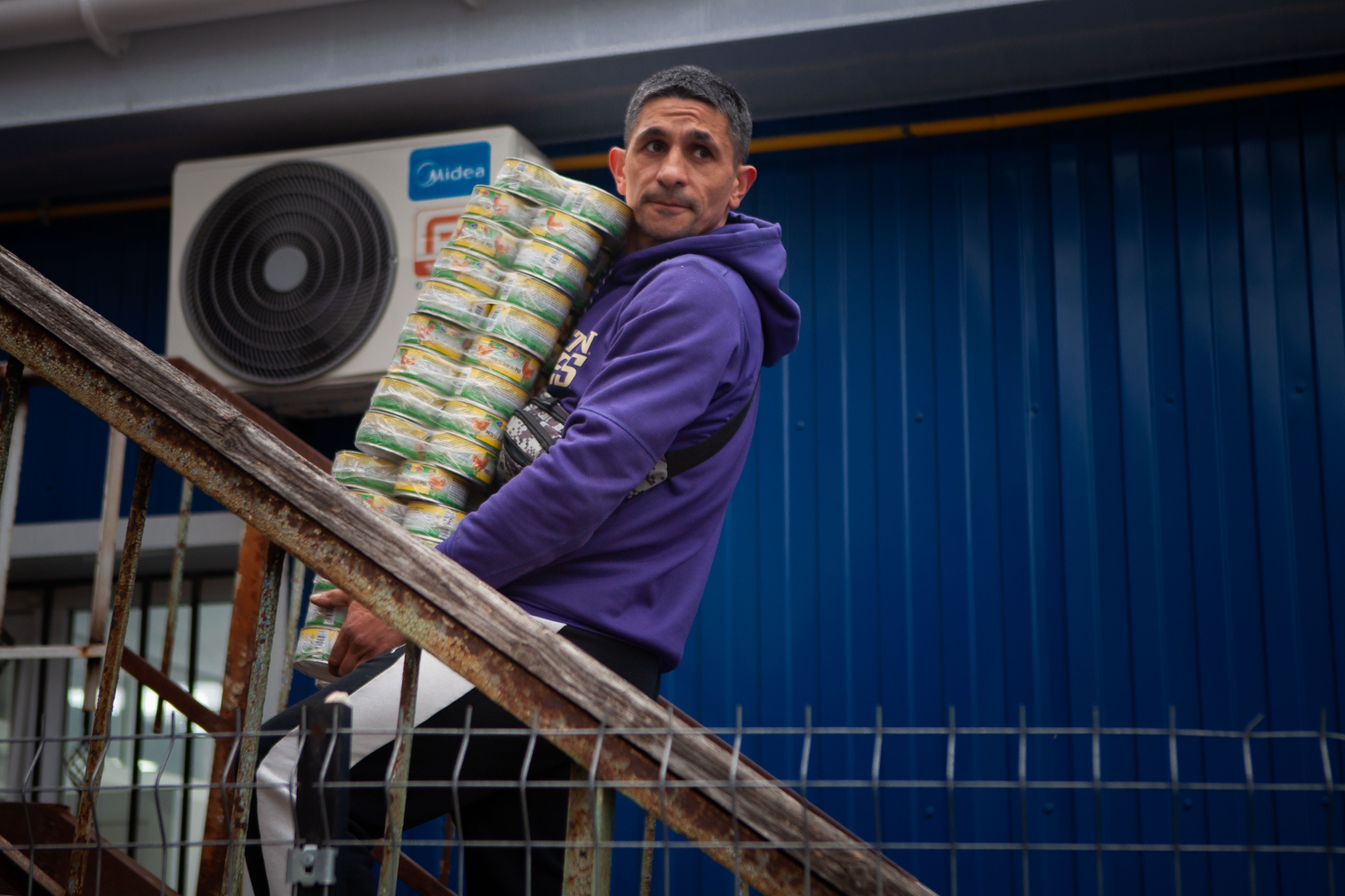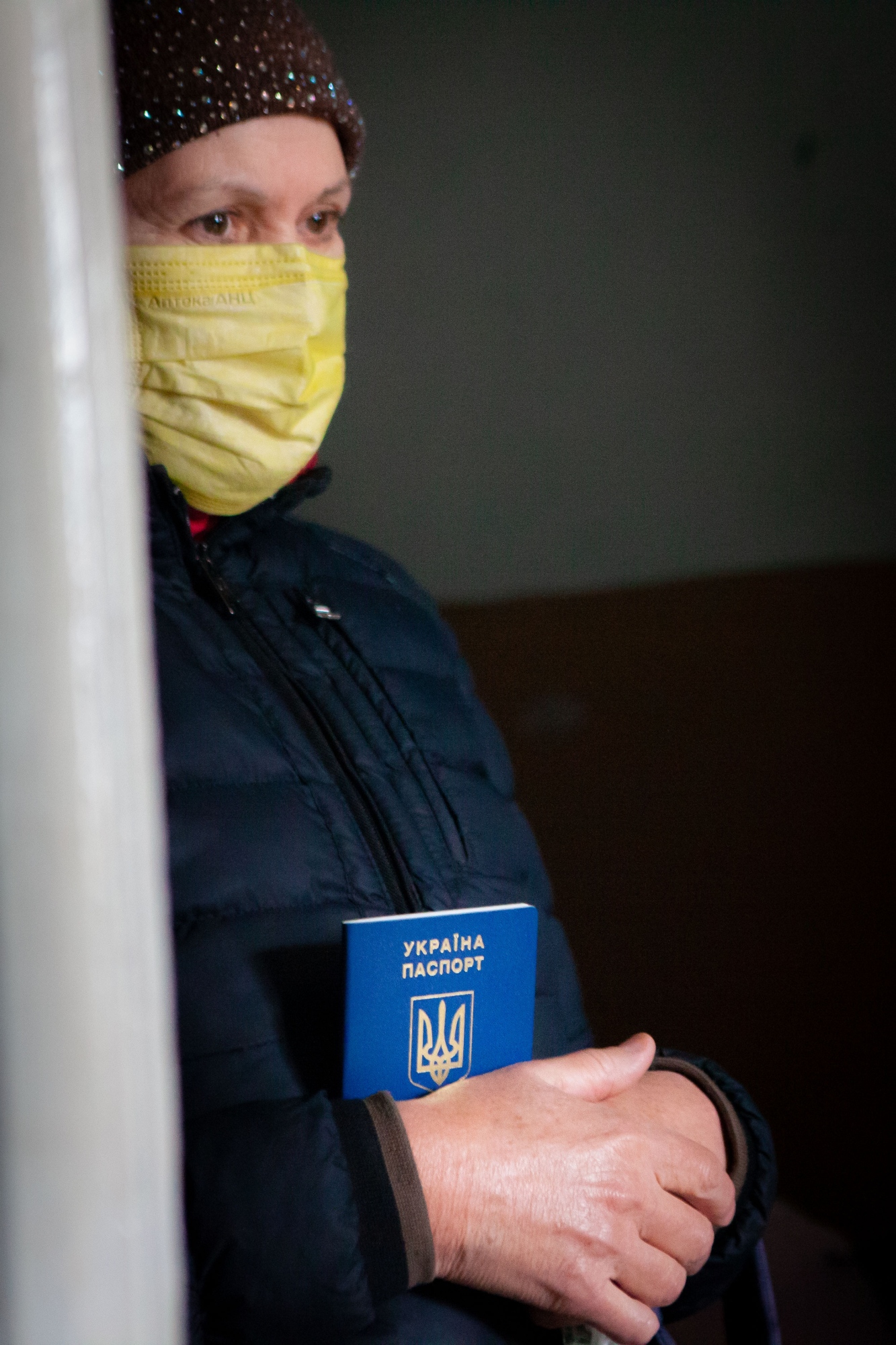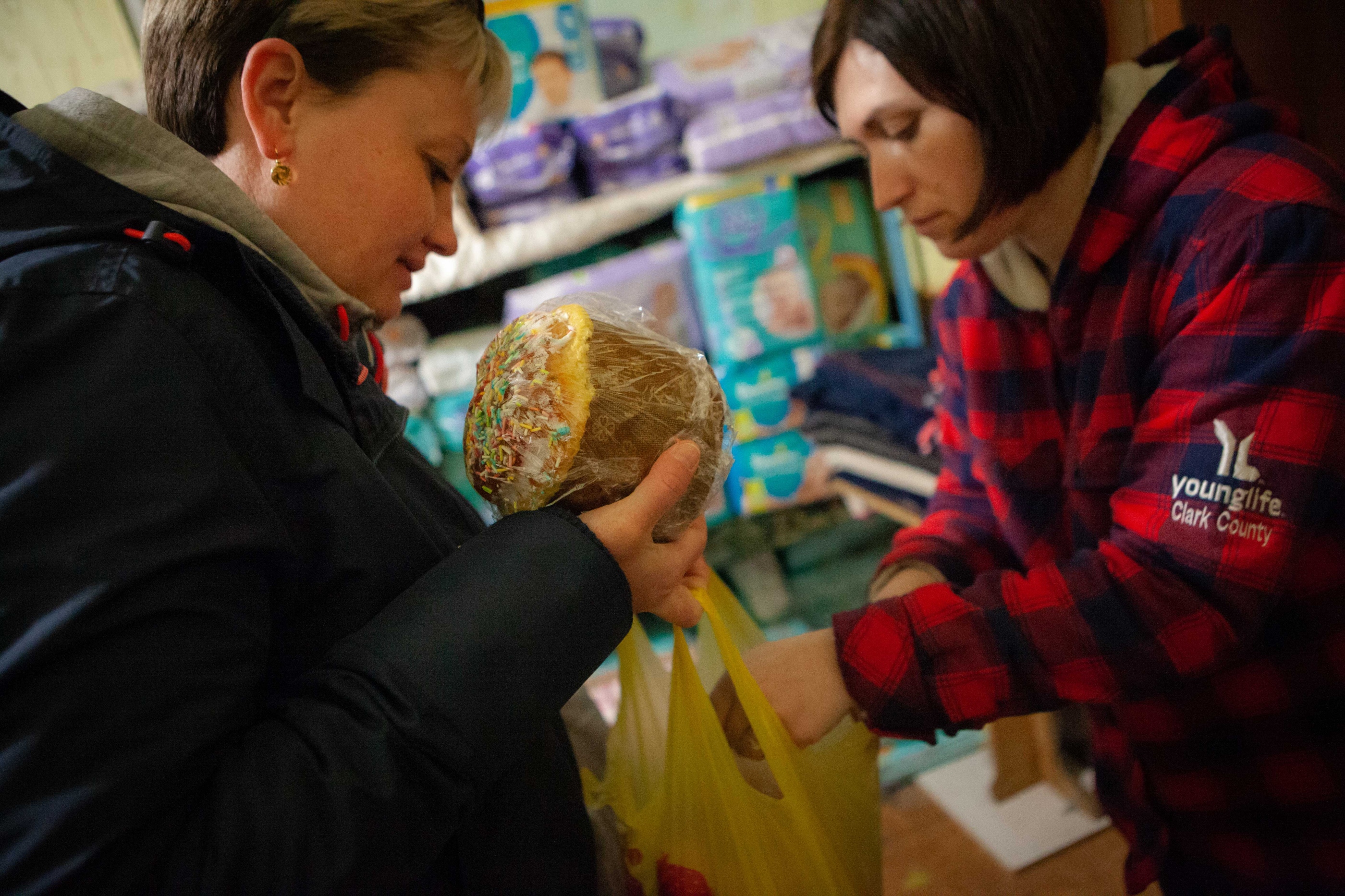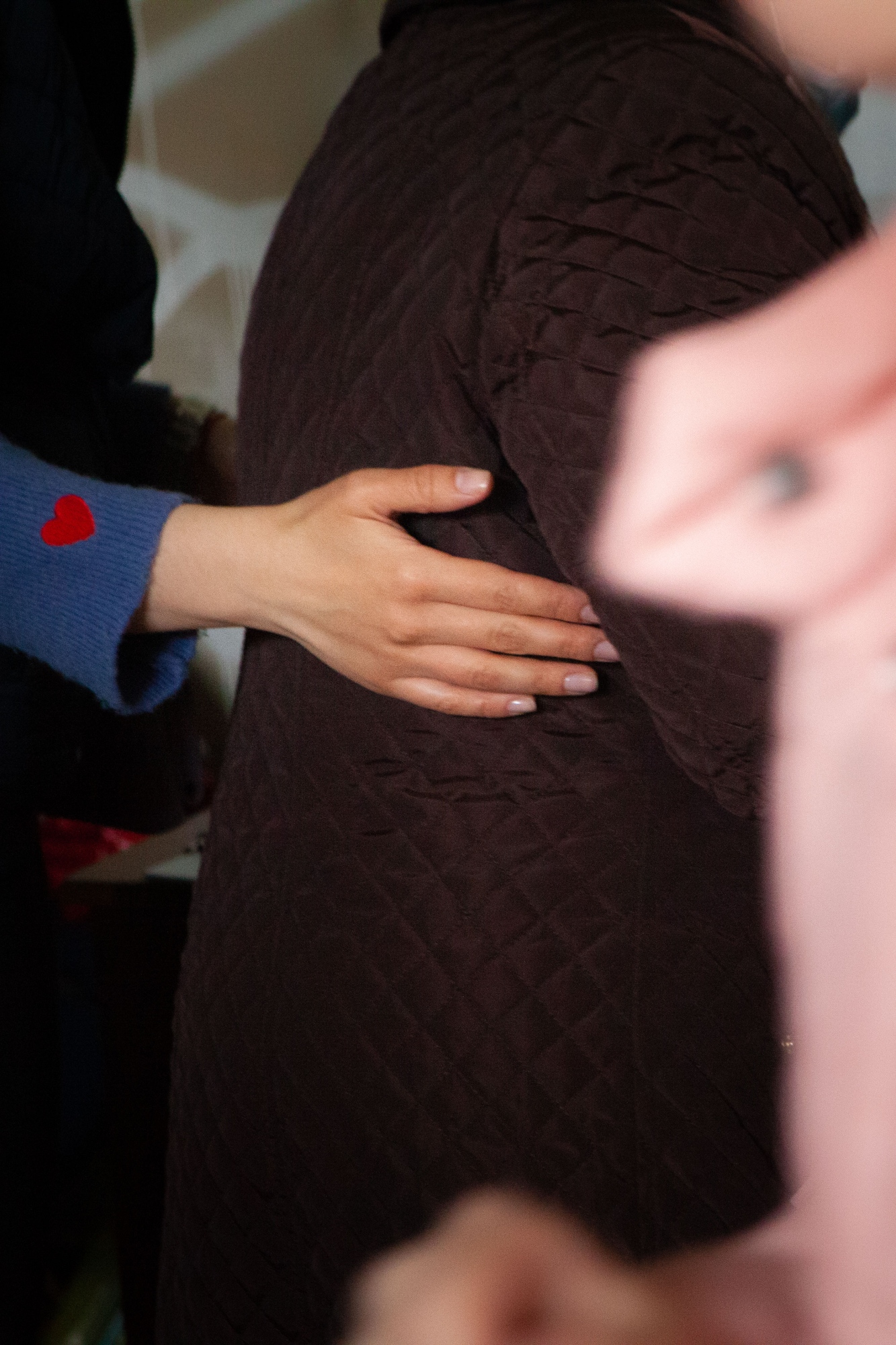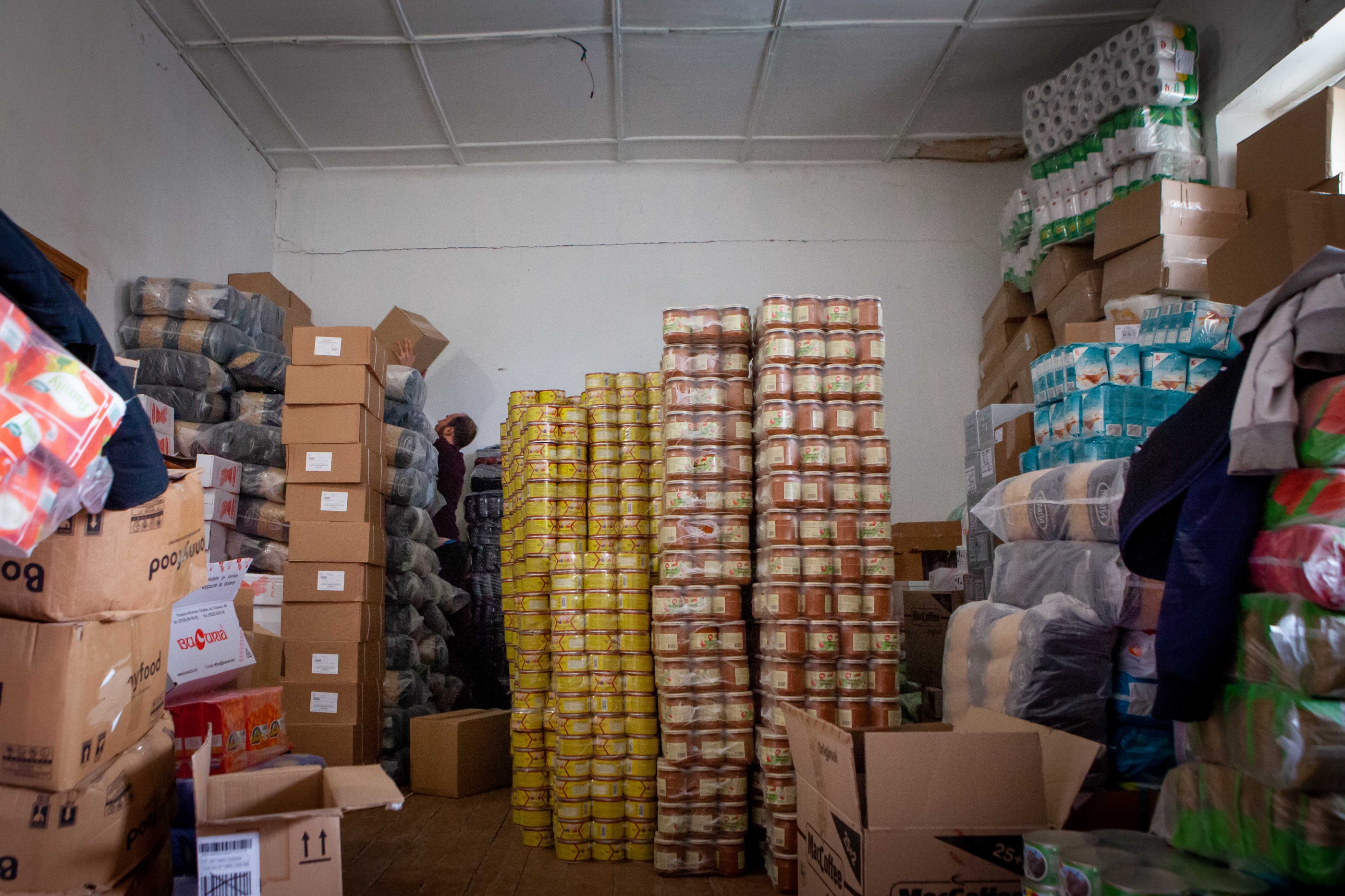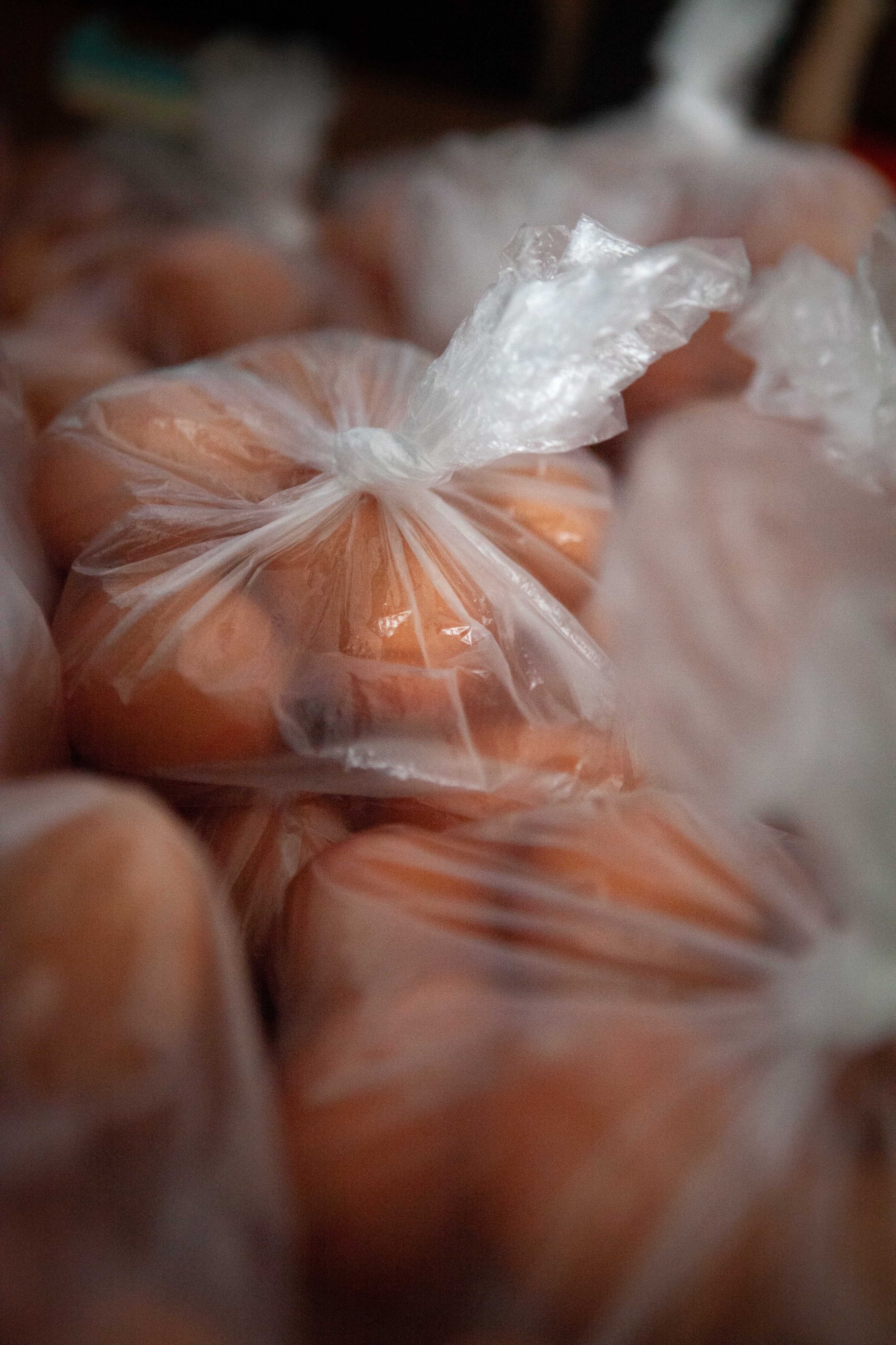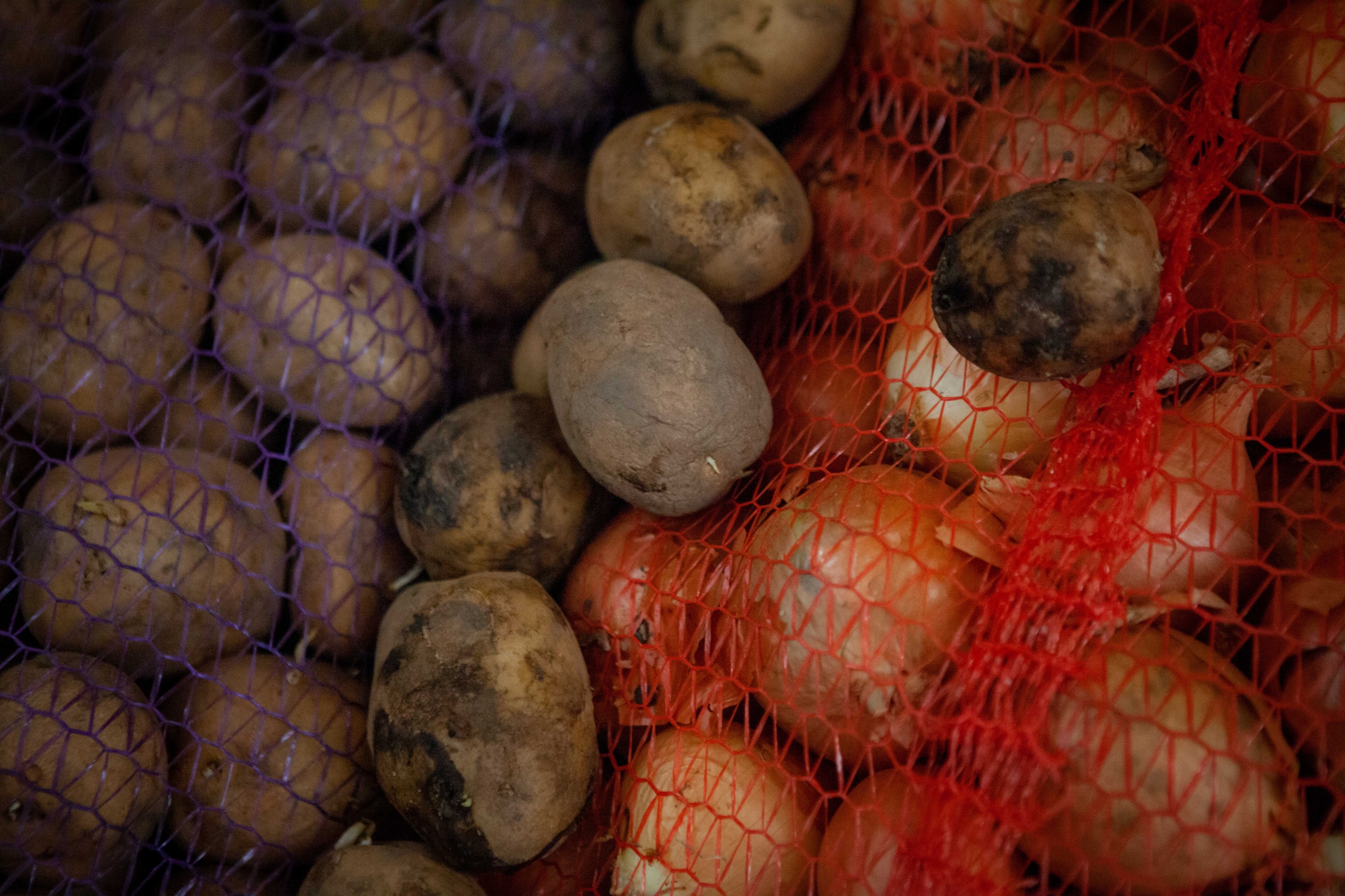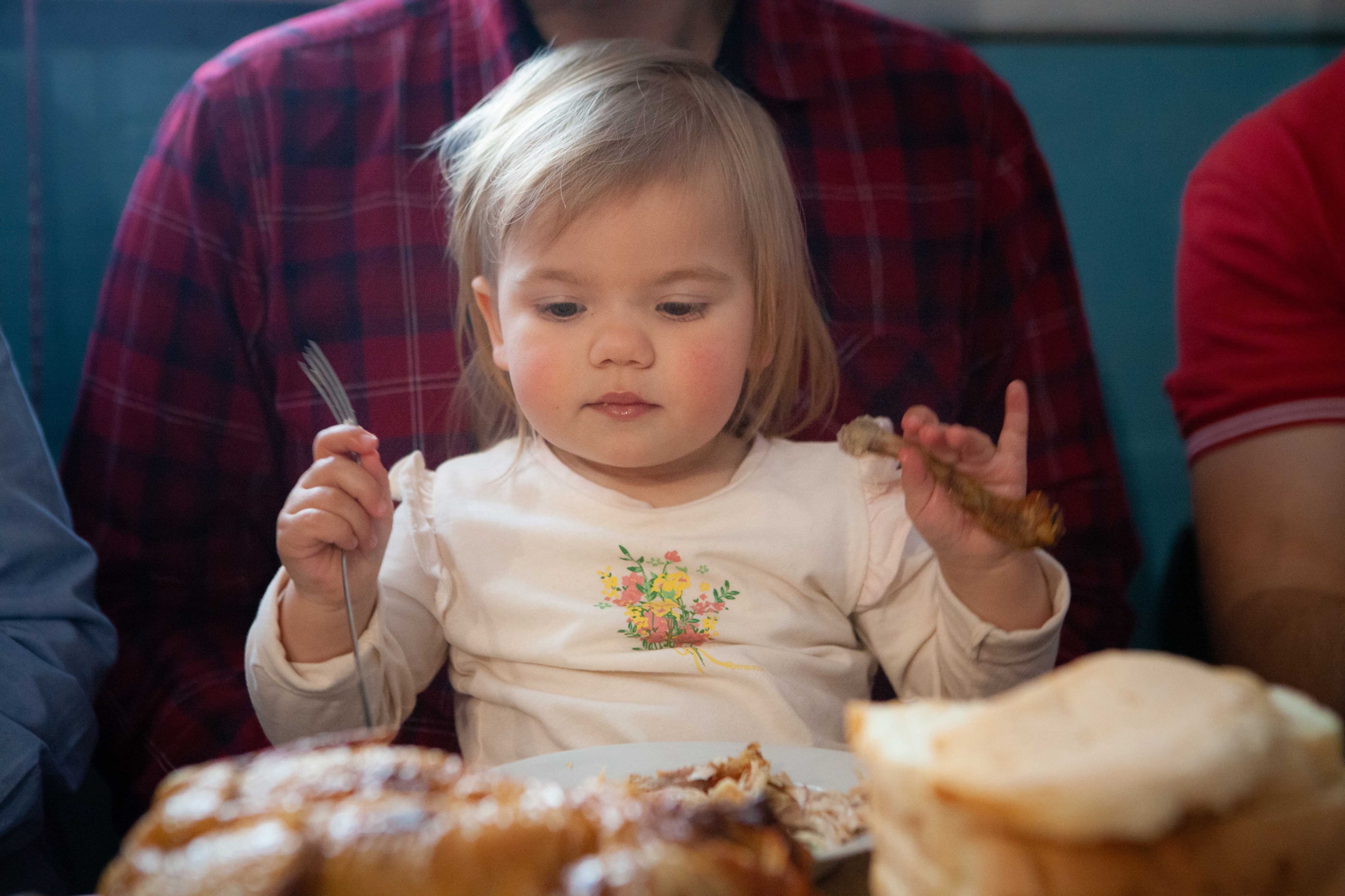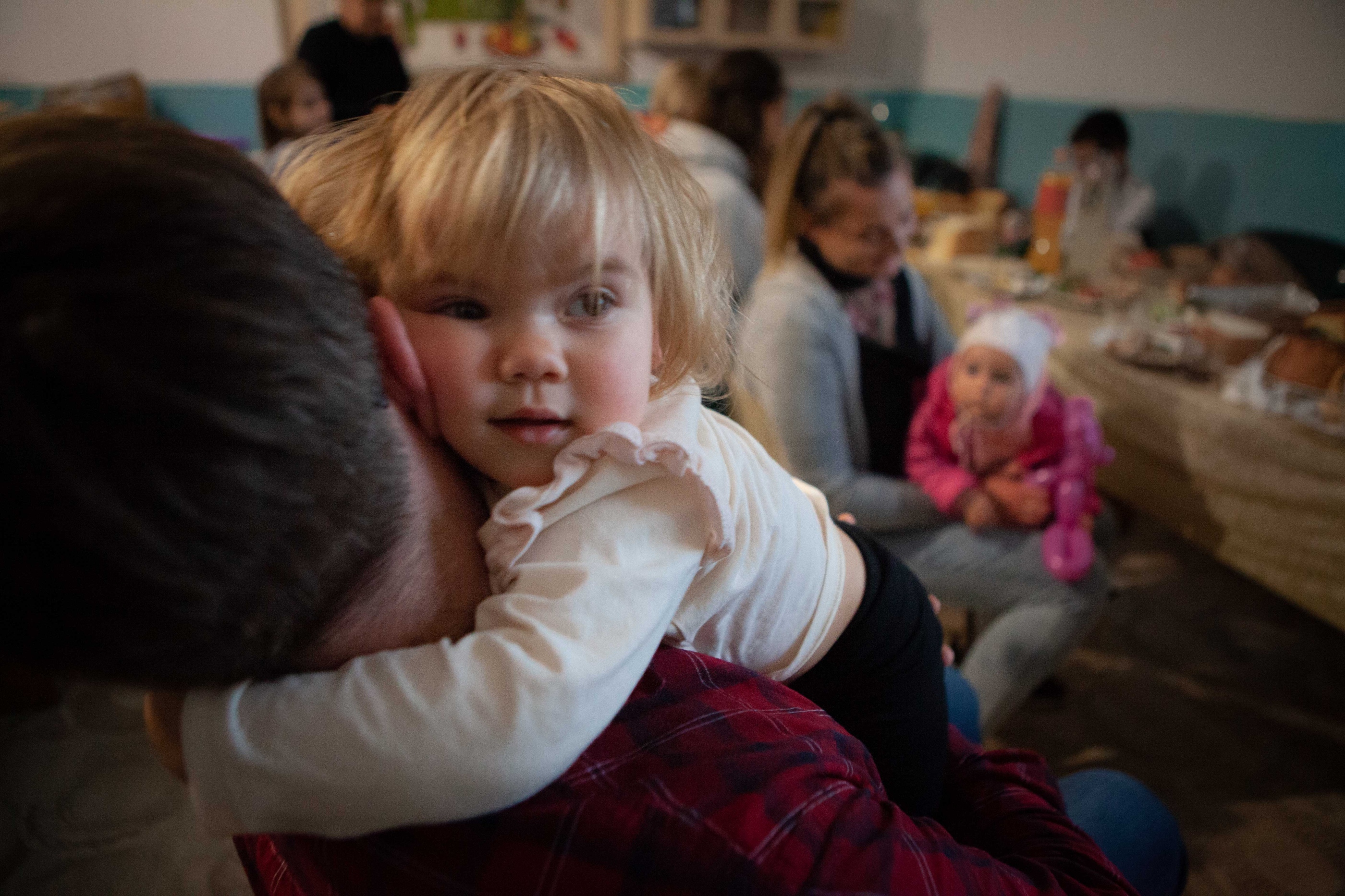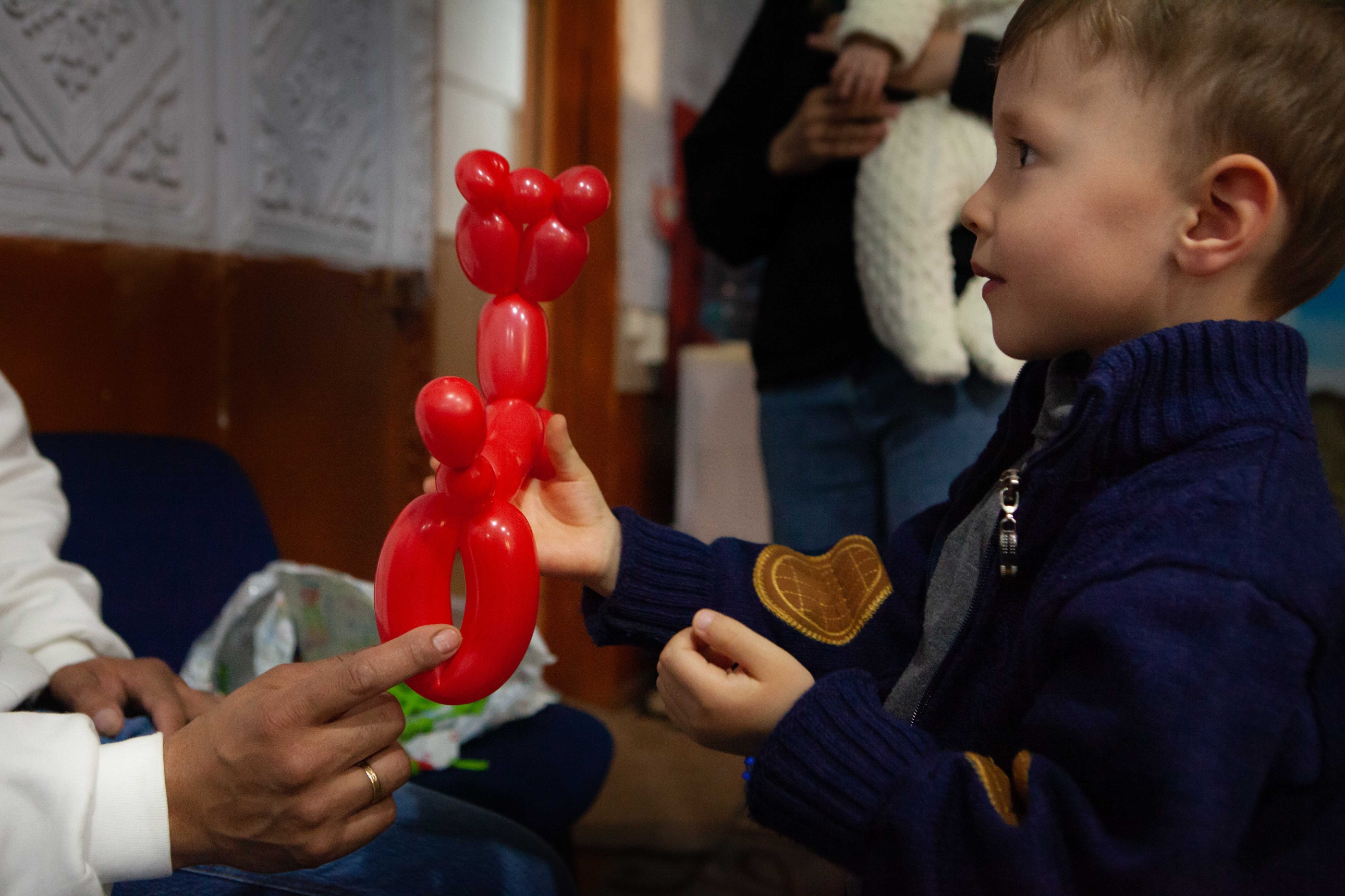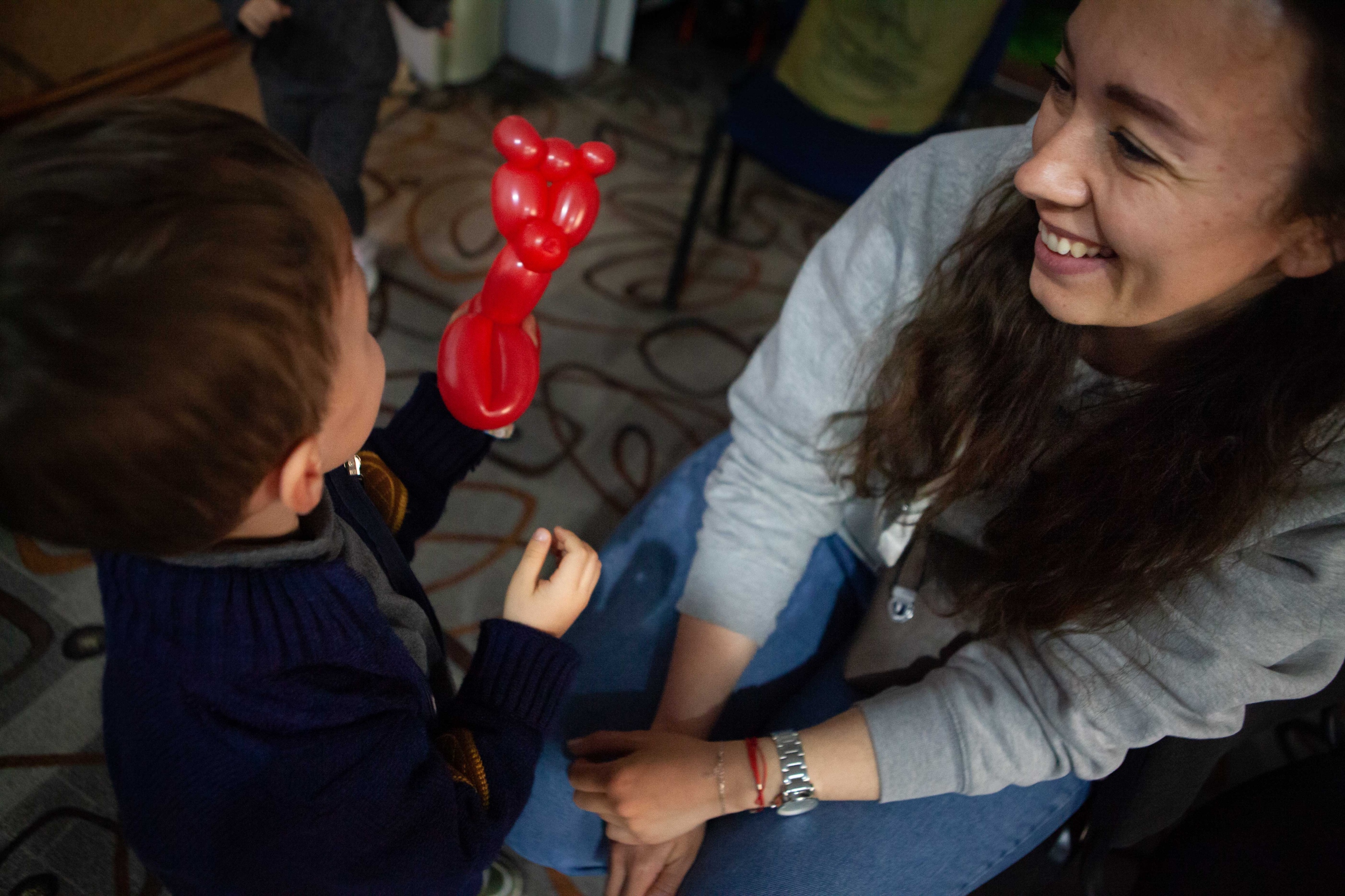To say that Budulai was dealt a difficult hand would be an understatement. A handsome, fit, and outgoing man nearing forty years old, Budulai always has a smile on his face. One might be surprised to find out that he was orphaned by his parents as an infant and had it tough growing up in late Cold War Era Soviet Moldova. Ethnically half Roma, Budulai had an immense amount working against him from birth in a Moldovan society that held little place for orphaned or Roma children, let alone a child who was both.
Yet Budulai has become one of the most effective, compassionate, and necessary parts of the response to the Ukrainian Refugee Crisis. This is in part because his non-traditional arrival to volunteer and non-profit work has given him a subtle understanding of the unprecedented nature of what was happening, but also made him uniquely qualified to solve many of the problems at hand. He has worked quietly, humbly, and diligently without recognition since day one and helped an untold number of people.
Yet Budulai has become one of the most effective, compassionate, and necessary parts of the response to the Ukrainian Refugee Crisis. This is in part because his non-traditional arrival to volunteer and non-profit work has given him a subtle understanding of the unprecedented nature of what was happening, but also made him uniquely qualified to solve many of the problems at hand. He has worked quietly, humbly, and diligently without recognition since day one and helped an untold number of people.
The long road home
Statistics are unclear, but suffice it to say that many of the living conditions for orphaned children in the Republic of Moldova, as in much of Eastern Europe, have historically been far less than ideal. The conditions for orphaned children in neighboring Romania in the 1990’s were infamous, ranging from a lack of heating, water, and sanitary conditions to profound social, emotional, and physical neglect that led to documented attachment and mental health disorders. Moldova, a country with a fraction of the GDP of Romania, is not expected to have fared much better, but the country’s lack of international visibility and resources have kept true numbers and conditions opaque.
That being said, things have improved somewhat with the passage of time, though nowhere near where they need to be in a country that is still working to find a real place for disabled or displaced children in the 21st Century. That is all to say that Budulai, now solidly in the spring of middle age with two daughters in their late teens, was surely required to navigate a child foster system that was as difficult or worse than the 1990’s systems that cast such a shadow on the region today.
As late as 2014, an article published in BBC News observed an orphanage outside of Chișinău, Moldova’s capital, saying, “The institutions are surprisingly well maintained. From the outside, the one I was able to visit looked like a school, with plants and a play area, while inside there were pictures on the walls and toys on display. Yet the first thing you notice is how quiet it is: dozens of young children live in the institution, but you do not hear any noise.”
Statistics are unclear, but suffice it to say that many of the living conditions for orphaned children in the Republic of Moldova, as in much of Eastern Europe, have historically been far less than ideal. The conditions for orphaned children in neighboring Romania in the 1990’s were infamous, ranging from a lack of heating, water, and sanitary conditions to profound social, emotional, and physical neglect that led to documented attachment and mental health disorders. Moldova, a country with a fraction of the GDP of Romania, is not expected to have fared much better, but the country’s lack of international visibility and resources have kept true numbers and conditions opaque.
That being said, things have improved somewhat with the passage of time, though nowhere near where they need to be in a country that is still working to find a real place for disabled or displaced children in the 21st Century. That is all to say that Budulai, now solidly in the spring of middle age with two daughters in their late teens, was surely required to navigate a child foster system that was as difficult or worse than the 1990’s systems that cast such a shadow on the region today.
As late as 2014, an article published in BBC News observed an orphanage outside of Chișinău, Moldova’s capital, saying, “The institutions are surprisingly well maintained. From the outside, the one I was able to visit looked like a school, with plants and a play area, while inside there were pictures on the walls and toys on display. Yet the first thing you notice is how quiet it is: dozens of young children live in the institution, but you do not hear any noise.”
Budulai recalled that same lack of noise as a young boy, despite the fact that he was injected into the system decades earlier. The way he describes it to me, his parents gave him up and sent him to what normally translates as a boarding school or internat, though the recollections of silence, the age he was sent, and the brevity of time that he stayed, leave me without a doubt that it was, in fact, an orphanage. Budulai and I converse in simplified and sometimes broken Romanian, his primary language being Russian and my former fluency in Romanian is sadly now incredibly rusty.
Very luckily, however, Budulai was ultimately moved and grew up with a foster mother and father, Anna Nikolayevna and Petr Isidorovich (Petr is now dead), in the beautiful small town of Drochia, 40 km north of Bălți. Though he still had a hard road ahead, the anchor of a genuinely loving foster home gave Budulai a gravitational point that he would ultimately return to later in his life.
It was in Budulai’s childhood home that we found ourselves over Easter—taking the first day off in weeks since the start of the Russian invasion. Budulai's team at the Bălți Distribution Center had been working every day in one capacity or another to provide Ukrainian refugees with food, toiletries, and home goods ever since the start of the war and the resultant influx of Ukrainians spreading across the country. The need that Budulai and his team were meeting in many ways has been the completion of a lifelong cycle from Hell to Heaven for Budulai. But we weren’t thinking about that today. Today was all about family and remembrance.
Very luckily, however, Budulai was ultimately moved and grew up with a foster mother and father, Anna Nikolayevna and Petr Isidorovich (Petr is now dead), in the beautiful small town of Drochia, 40 km north of Bălți. Though he still had a hard road ahead, the anchor of a genuinely loving foster home gave Budulai a gravitational point that he would ultimately return to later in his life.
It was in Budulai’s childhood home that we found ourselves over Easter—taking the first day off in weeks since the start of the Russian invasion. Budulai's team at the Bălți Distribution Center had been working every day in one capacity or another to provide Ukrainian refugees with food, toiletries, and home goods ever since the start of the war and the resultant influx of Ukrainians spreading across the country. The need that Budulai and his team were meeting in many ways has been the completion of a lifelong cycle from Hell to Heaven for Budulai. But we weren’t thinking about that today. Today was all about family and remembrance.
“Anna called and asked if I was coming to visit my mother for Easter.” Buduali told me, “Then I had this realization and said for the first time, ‘Oh, I do actually have a mother!’”
—“That’s what I said,” Anna interjected good-naturedly.
As far as I can reason, Anna is part of Moldova’s Professional Parental Assistance Service, a kind of professional foster mother, a role she still maintains to this day. Even as her first generations of foster children have gone on to start their own families multiple times over, she still opens her home to new generations of foster children. As we sit in a carpeted room waiting for Easter lunch to be served, Anna recounts her wisdom while Budulai cracks wise about his childhood antics and plays with the little kids running around his ankles.
We look through old photo albums as well and I find it easy to pick Budulai out as a child. For one thing, his face hasn’t changed much. His face is distinct and his features are prominent and don’t lend themselves to rapid aging. But also, his skin is notably darker than most of the children around him. His thick full head of hair is pitch black. It hints at his ethnically Roma roots, another barrier Budulai had to overcome growing up in Moldova. But it was a barrier that proved useful in the context of the Ukrainian refugee crisis and soon Budulai was in a unique position to ultimately solve problems few others could…
—“That’s what I said,” Anna interjected good-naturedly.
As far as I can reason, Anna is part of Moldova’s Professional Parental Assistance Service, a kind of professional foster mother, a role she still maintains to this day. Even as her first generations of foster children have gone on to start their own families multiple times over, she still opens her home to new generations of foster children. As we sit in a carpeted room waiting for Easter lunch to be served, Anna recounts her wisdom while Budulai cracks wise about his childhood antics and plays with the little kids running around his ankles.
We look through old photo albums as well and I find it easy to pick Budulai out as a child. For one thing, his face hasn’t changed much. His face is distinct and his features are prominent and don’t lend themselves to rapid aging. But also, his skin is notably darker than most of the children around him. His thick full head of hair is pitch black. It hints at his ethnically Roma roots, another barrier Budulai had to overcome growing up in Moldova. But it was a barrier that proved useful in the context of the Ukrainian refugee crisis and soon Budulai was in a unique position to ultimately solve problems few others could…
Roma meets refugee
Roma are one of the most disadvantaged minority groups not just in Moldova, but globally. And Roma children are not spared any of the brunt of the discrimination that the entirety of the population sees. Even today, Roma children have less access to a safe, healthy, and educated childhood than their non-Roma contemporaries. And the Roma population in Europe is highly insular, rarely interacting with the rest of the population. This has only exacerbated the discrimination, lack of access, and oftentimes hostility between the Roma and other Moldovans.
There is an argument (though often debated for reasons I do not have space to get into in this article) to be made that at least Roma populations have a community within themselves. Regardless, Budulai arguably did not have access to that community and therefore experienced the prejudice of his ethnicity, without having the benefit of being directly part of its culture. But even his Roma ethnicity has become an asset to him and the work he does today.
The Roma contingent with regards to the Ukrainian refugee crisis has been contentious to say the least. Reports in a wide variety of publications have attempted to portray the experience of Roma fleeing the war, but haven’t quite hit the mark. They paint the minority population in an understandably sympathetic, but ultimately incomplete light. Stories of Roma being turned away from camps, apartments, and distribution centers are not necessarily wrong, but to assume that the people running these facilities are acting purely out of racism and spite, is simply incorrect.
Roma are one of the most disadvantaged minority groups not just in Moldova, but globally. And Roma children are not spared any of the brunt of the discrimination that the entirety of the population sees. Even today, Roma children have less access to a safe, healthy, and educated childhood than their non-Roma contemporaries. And the Roma population in Europe is highly insular, rarely interacting with the rest of the population. This has only exacerbated the discrimination, lack of access, and oftentimes hostility between the Roma and other Moldovans.
There is an argument (though often debated for reasons I do not have space to get into in this article) to be made that at least Roma populations have a community within themselves. Regardless, Budulai arguably did not have access to that community and therefore experienced the prejudice of his ethnicity, without having the benefit of being directly part of its culture. But even his Roma ethnicity has become an asset to him and the work he does today.
The Roma contingent with regards to the Ukrainian refugee crisis has been contentious to say the least. Reports in a wide variety of publications have attempted to portray the experience of Roma fleeing the war, but haven’t quite hit the mark. They paint the minority population in an understandably sympathetic, but ultimately incomplete light. Stories of Roma being turned away from camps, apartments, and distribution centers are not necessarily wrong, but to assume that the people running these facilities are acting purely out of racism and spite, is simply incorrect.
Given the complexity of the situation, coupled with the difficulty of fully understanding the dynamics of these profoundly insular communities, I am a bit nervous to comment, but it would be a disservice to everyone trying to address the situation in an understanding and equitable way to not mention what is going on to the best of my ability—so I will try in earnest. All of what is written here is based on first hand accounts of what I have either seen, or what people have reported to me regarding the Roma contingent.
First things first, the Roma community are undoubtedly seeing doors closed when it comes to refugee services, but to think that those doors were initially closed is not exactly fair or true to assume. As has been explained to me by many people working in refugee response, given the community’s deep and expansive international ties, many Roma have been able to tap into their own networks to find housing and resources. For a historically separated community, it makes more sense that they would find ways to solve problems outside of the established norm. But another important thing to remember is that disenfranchisement always plays a role in behavior. The more disenfranchised a group, the more apt certain measures are to be taken to get by. So ask yourself this, what if you were singled out from an already disenfranchised group—excluded from the excluded—how would that affect your behavior?
First things first, the Roma community are undoubtedly seeing doors closed when it comes to refugee services, but to think that those doors were initially closed is not exactly fair or true to assume. As has been explained to me by many people working in refugee response, given the community’s deep and expansive international ties, many Roma have been able to tap into their own networks to find housing and resources. For a historically separated community, it makes more sense that they would find ways to solve problems outside of the established norm. But another important thing to remember is that disenfranchisement always plays a role in behavior. The more disenfranchised a group, the more apt certain measures are to be taken to get by. So ask yourself this, what if you were singled out from an already disenfranchised group—excluded from the excluded—how would that affect your behavior?
I ask this question as a means to start to get into the heart of one of the issues at hand. When it comes to things like early tent cities and short term refugee housing, Roma were, and still often are, welcome to stay. During my last trip to Palanca, the busiest border crossing in Moldova, I saw Roma families moving throughout the camps unencumbered and welcomed. Yet, if most of the Roma were using their cultural communities to travel and find places to stay, that left largely those who have been excluded from the Roma community using these facilities. Higher instances of acute poverty and mental illness, coupled with lower instances of access to resources, presented early refugee services with a population of people who were not using their facilities well. Issues ranged from lack of cleanliness to instances of conflict in refugee housing facilities—there were even concerns of human trafficking at the border on the most extreme end of the spectrum. Therefore volunteers had to make some tough decisions, which sometimes included barring Roma populations from using facilities in areas where the issues were most acute.
While Budulai and his team did not have to deal with tent camps or short-term housing issues, they did experience a different contingent of the Roma issue at their Bălți Distribution Center. The center was set up like many of its kind in the country. Like the Smokehouse Distribution Center, the Bălți Distribution Center offered food, toiletries, clothes and bedding to refugees as they resettled, or transitioned through, Moldova. The center was developed within the first month of the invasion and has largely been supported by Friends of Moldova (FoM), a Returned Peace Corps Volunteer non-profit, whose mission is to support Moldovan civil and youth activists, initiatives, and social entrepreneurs. According to its website, “As of Fall 2022, [FoM has] distributed over $830,000 (as of September 2022), in direct support to over 70,000 Ukrainian refugees.”
While Budulai and his team did not have to deal with tent camps or short-term housing issues, they did experience a different contingent of the Roma issue at their Bălți Distribution Center. The center was set up like many of its kind in the country. Like the Smokehouse Distribution Center, the Bălți Distribution Center offered food, toiletries, clothes and bedding to refugees as they resettled, or transitioned through, Moldova. The center was developed within the first month of the invasion and has largely been supported by Friends of Moldova (FoM), a Returned Peace Corps Volunteer non-profit, whose mission is to support Moldovan civil and youth activists, initiatives, and social entrepreneurs. According to its website, “As of Fall 2022, [FoM has] distributed over $830,000 (as of September 2022), in direct support to over 70,000 Ukrainian refugees.”
One example of an issue that the center had to address came about when they found Roma selling the items that they were getting from the center at the local Piața (outdoor market) the next day. Other examples were families coming in every day to get the same goods—clearly using more than they needed. It should be noted that that behavior has in no way been limited to Roma populations and has been seen across the board and often speaks to issues of scarcity mindset while under acute stress, navigating host family dynamics, and planning for unknown travel west.
Distribution issues are expensive and since the vast majority of the donations coming into the center were from individual donors, money was tight. So Budulai and his team had to figure out a way to address the issues at hand without isolating the Ukrainian Roma refugees who needed their services.
This is where Budulai’s background came as a distinct advantage. Though he lived outside of the community, he was still seen as a Roma and could therefore build a rapport with the groups coming in and find out what was going on. In the case of resellers, it was a frank conversation and a limiting of what was offered. But in the case of the groups coming in day after day after day, Budulai’s conversations exposed a subtler issue.
Distribution issues are expensive and since the vast majority of the donations coming into the center were from individual donors, money was tight. So Budulai and his team had to figure out a way to address the issues at hand without isolating the Ukrainian Roma refugees who needed their services.
This is where Budulai’s background came as a distinct advantage. Though he lived outside of the community, he was still seen as a Roma and could therefore build a rapport with the groups coming in and find out what was going on. In the case of resellers, it was a frank conversation and a limiting of what was offered. But in the case of the groups coming in day after day after day, Budulai’s conversations exposed a subtler issue.
Many Roma were coming from a refugee center in Glodeni, 35 km (about 22 miles) west of Bălți looking for a wider variety of food goods than they were getting at the center. As it turned out, Budulai and his team were in fact providing the center with food and so yet another frank conversation had to happen.
Budulai explained that, “Hey, I get that you are probably getting the same kinds of meals every day, but you have to remember that you are not dying of hunger and everybody’s resources are very tight.”
He continued, “If you want to get a wider variety of food, that is something you will have to work with the director of your center on and we will accommodate as best we can, but we need to work together to build a system that works so that we can keep helping for as long as the need is there.” Budulai chose to build a bridge, rather than knock one down.
It is Budulai’s historic disadvantage that has allowed him to solve problems that might not have been solved otherwise. It is his patience that has brought every party around to work together. And it is his humor that gives everyone around him hope to keep moving forward. This is a common theme in Budulai’s story today.
Budulai explained that, “Hey, I get that you are probably getting the same kinds of meals every day, but you have to remember that you are not dying of hunger and everybody’s resources are very tight.”
He continued, “If you want to get a wider variety of food, that is something you will have to work with the director of your center on and we will accommodate as best we can, but we need to work together to build a system that works so that we can keep helping for as long as the need is there.” Budulai chose to build a bridge, rather than knock one down.
It is Budulai’s historic disadvantage that has allowed him to solve problems that might not have been solved otherwise. It is his patience that has brought every party around to work together. And it is his humor that gives everyone around him hope to keep moving forward. This is a common theme in Budulai’s story today.
It is this patience that becomes all the more impressive when I come to the realization that Budulai still faces stark and ugly prejudice against Roma every day—even as he works incredibly hard to better his community and the world. Bartosz (a long-time friend since Bartosz’s tenure as a Peace Corps Volunteer), once explained, “the most amazing thing I had seen when it comes to Budulai’s patience was one day when we were out for ice cream. A somewhat tipsy man comes up to us and strikes up a conversation. He somehow starts in on this monologue about how he’s never met a decent or hardworking gypsy (Roma) in his life. He must have been going on and on for almost twenty minutes.”
“Can you imagine?” Bartosz asked me, “Having helped thousands of Ukrainians by that point and having to hear that after a tough day of work? But Budulai just turned the other cheek. He said, ‘I don’t know that guy and he doesn’t know me, so we can’t really understand what the other is going through right now.’ When I asked him, ‘Do you get that a lot?’ He replied, ‘Yes, but at this point, I feel almost immune to it. There is good work that needs to be done that I need to focus on.’”
“Can you imagine?” Bartosz asked me, “Having helped thousands of Ukrainians by that point and having to hear that after a tough day of work? But Budulai just turned the other cheek. He said, ‘I don’t know that guy and he doesn’t know me, so we can’t really understand what the other is going through right now.’ When I asked him, ‘Do you get that a lot?’ He replied, ‘Yes, but at this point, I feel almost immune to it. There is good work that needs to be done that I need to focus on.’”
Despite his hard start and continued experiences of racism, Budulai has found himself with a mother, a loving family, and at the head of an impactful nonprofit in an oft-overlooked part of the world. As a father, he is sure to tell his daughters every day to hold strong in their Roma identity and never to feel less than because of prejudice. It is proof of his consistent ability throughout his life to turn the 2-7 offsuit hand that life dealt him into a winning full house.
But being orphaned and Roma were not the only things that Budulai struggled with early in his life. Budulai’s later troubles were what brought him, somewhat ironically, to volunteer work.
A few hours after our Easter lunch at his mother’s home, I watched Budulai as he made balloon animals for the children of his center’s volunteers. It was another aspect of his personality and skill set that surprised me. Balloon animals: I could not help but laugh as he twisted and tied together dogs, flowers, and everything in between.
The Bălți Distribution Center is supported in large part by Ukrainian refugee volunteers who wanted to help despite their circumstances (and often in response to them). In turn, Budulai and his team work to show their gratitude in every way possible, paying volunteers when they can, and holding events on a weekly basis so that their refugee volunteers can have a sense of community amongst their displacement. The center offers everything from cultural trips to famous Moldova historic sites, to cooking classes on how to make signature Moldovan dishes, to holiday celebrations, such as this evening’s Easter dinner.
Budulai is in his element. But I can’t help but recall the conversation we had as we drove back to Bălți from Drochia, just a few hours earlier.
But being orphaned and Roma were not the only things that Budulai struggled with early in his life. Budulai’s later troubles were what brought him, somewhat ironically, to volunteer work.
A few hours after our Easter lunch at his mother’s home, I watched Budulai as he made balloon animals for the children of his center’s volunteers. It was another aspect of his personality and skill set that surprised me. Balloon animals: I could not help but laugh as he twisted and tied together dogs, flowers, and everything in between.
The Bălți Distribution Center is supported in large part by Ukrainian refugee volunteers who wanted to help despite their circumstances (and often in response to them). In turn, Budulai and his team work to show their gratitude in every way possible, paying volunteers when they can, and holding events on a weekly basis so that their refugee volunteers can have a sense of community amongst their displacement. The center offers everything from cultural trips to famous Moldova historic sites, to cooking classes on how to make signature Moldovan dishes, to holiday celebrations, such as this evening’s Easter dinner.
Budulai is in his element. But I can’t help but recall the conversation we had as we drove back to Bălți from Drochia, just a few hours earlier.
A purpose in life
A few hours after our Easter lunch at his mother’s home, I watched Budulai as he made balloon animals for the children of his center’s volunteers. It was another aspect of his personality and skill set that surprised me. Balloon animals: I could not help but laugh as he twisted and tied together dogs, flowers, and everything in between.
The Bălți Distribution Center is supported in large part by Ukrainian refugee volunteers who wanted to help despite their circumstances (and often in response to them). In turn, Budulai and his team work to show their gratitude in every way possible, paying volunteers when they can, and holding events on a weekly basis so that their refugee volunteers can have a sense of community amongst their displacement. The center offers everything from cultural trips to famous Moldova historic sites, to cooking classes on how to make signature Moldovan dishes, to holiday celebrations, such as this evening’s Easter dinner.
Budulai is in his element. But I can’t help but recall the conversation we had as we drove back to Bălți from Drochia, just a few hours earlier.
A few hours after our Easter lunch at his mother’s home, I watched Budulai as he made balloon animals for the children of his center’s volunteers. It was another aspect of his personality and skill set that surprised me. Balloon animals: I could not help but laugh as he twisted and tied together dogs, flowers, and everything in between.
The Bălți Distribution Center is supported in large part by Ukrainian refugee volunteers who wanted to help despite their circumstances (and often in response to them). In turn, Budulai and his team work to show their gratitude in every way possible, paying volunteers when they can, and holding events on a weekly basis so that their refugee volunteers can have a sense of community amongst their displacement. The center offers everything from cultural trips to famous Moldova historic sites, to cooking classes on how to make signature Moldovan dishes, to holiday celebrations, such as this evening’s Easter dinner.
Budulai is in his element. But I can’t help but recall the conversation we had as we drove back to Bălți from Drochia, just a few hours earlier.
In January of 2022, Budulai and Bartosz were having a heart-to-heart in the dead of Moldova’s intense, dark winter.
“What is my purpose in life?” Budulai asked. Or maybe it was Bartosz that asked. Regardless, when he told me this story as we were driving, I looked over at him in amazement. That had been the exact question I had asked myself that month. And I told him as much.
“I understand how you feel.” In the winter of 2022, all three of us were asking the same question.
“You know,” he responded. “I would sit at the dinner table eating good food. I was comfortable and warm and with the family I loved, but I couldn’t stop wondering, what good is it for me to eat this food? What is my purpose?” Little did he know that an answer would come in less than a month.
Yet his feelings of purposelessness struck me as surprising. Long before the invasion, Budulai had started a non-profit called, Zdorovii Gorod. It was an organization aimed at improving community health in the most profound of ways. Zdorovii Gorod was, yet again, a way that Budulai had taken a hard past and turned it into a charitable future.
Budulai had started drinking and smoking weed when he was thirteen years old. It was a lifestyle that quickly led him into the world of organized crime in Eastern Europe. As we drove back to Bălți, what struck me when he explained this part of his life was that he switched his language to English as best he could, despite the fact that his English was less developed than his Romanian. I looked in the rearview mirror at his wife and mother-in-law in the back seat as Budulai talked. It made sense. This part of his life was not one that was pleasant to reflect on and they had both been there to see it play out. By speaking English, he was sparing his family the touch of memory—the only other time he switched to English during our conversation was when he took a moment to talk about how much he loved his wife.
“What is my purpose in life?” Budulai asked. Or maybe it was Bartosz that asked. Regardless, when he told me this story as we were driving, I looked over at him in amazement. That had been the exact question I had asked myself that month. And I told him as much.
“I understand how you feel.” In the winter of 2022, all three of us were asking the same question.
“You know,” he responded. “I would sit at the dinner table eating good food. I was comfortable and warm and with the family I loved, but I couldn’t stop wondering, what good is it for me to eat this food? What is my purpose?” Little did he know that an answer would come in less than a month.
Yet his feelings of purposelessness struck me as surprising. Long before the invasion, Budulai had started a non-profit called, Zdorovii Gorod. It was an organization aimed at improving community health in the most profound of ways. Zdorovii Gorod was, yet again, a way that Budulai had taken a hard past and turned it into a charitable future.
Budulai had started drinking and smoking weed when he was thirteen years old. It was a lifestyle that quickly led him into the world of organized crime in Eastern Europe. As we drove back to Bălți, what struck me when he explained this part of his life was that he switched his language to English as best he could, despite the fact that his English was less developed than his Romanian. I looked in the rearview mirror at his wife and mother-in-law in the back seat as Budulai talked. It made sense. This part of his life was not one that was pleasant to reflect on and they had both been there to see it play out. By speaking English, he was sparing his family the touch of memory—the only other time he switched to English during our conversation was when he took a moment to talk about how much he loved his wife.
It was the 90s and Budulai was fully engaged in the gangster lifestyle of the post-Soviet era in Eastern Europe: black BMWs, leather jackets, guns, and heroin. By Budulai’s description, it was not long until he found himself in the throes of an eight-year-long heroin addiction fed by his criminal activity. He was in and out of jail on a variety of charges. Amazingly, his wife (who he’d met in high school) and family never gave up on him, which I am sure, in part, led to his eventual recovery.
As Budulai explains it, he found a vision for his new life in prison as he prayed to God to change. Over and over again, Budulai prayed to kick his drug habit, as well as his involvement with crime, and do some good in his life. When he got out of jail for the last time, that is exactly what he did. After 14 years, he is still going strong.
That is how Zdorovii Gorod got started, Budulai wanted to provide a lifeline to young Moldovans at risk of making the same mistakes he did. At first, it started as simply as gathering at-risk youths around Balti to play soccer in the afternoons and it grew from there. Budulai has also been an outspoken helper to homeless Moldovans, as well as anyone else who finds themselves on the outs of Moldovan society. He has a kind of patience and understanding that can only be categorized as Christ-conscious-like, though, in my experience, he does not push his religious practice on anyone that is not inclined. The point is to do good, as much good as he can, every day, without fail, one day after the next.
This is why I was surprised at Budulai’s statement that he was not serving his purpose that late January night, but maybe it speaks to the fact that Budulai is always trying to do more and more and more. When the war hit, his first move was to travel down to Palanca—Moldova’s busiest border crossing—and drive refugees to Chisinau or Romania before the Moldovan government and international NGOs figured out how to respond by putting a shuttle system in place.
As Budulai explains it, he found a vision for his new life in prison as he prayed to God to change. Over and over again, Budulai prayed to kick his drug habit, as well as his involvement with crime, and do some good in his life. When he got out of jail for the last time, that is exactly what he did. After 14 years, he is still going strong.
That is how Zdorovii Gorod got started, Budulai wanted to provide a lifeline to young Moldovans at risk of making the same mistakes he did. At first, it started as simply as gathering at-risk youths around Balti to play soccer in the afternoons and it grew from there. Budulai has also been an outspoken helper to homeless Moldovans, as well as anyone else who finds themselves on the outs of Moldovan society. He has a kind of patience and understanding that can only be categorized as Christ-conscious-like, though, in my experience, he does not push his religious practice on anyone that is not inclined. The point is to do good, as much good as he can, every day, without fail, one day after the next.
This is why I was surprised at Budulai’s statement that he was not serving his purpose that late January night, but maybe it speaks to the fact that Budulai is always trying to do more and more and more. When the war hit, his first move was to travel down to Palanca—Moldova’s busiest border crossing—and drive refugees to Chisinau or Romania before the Moldovan government and international NGOs figured out how to respond by putting a shuttle system in place.
When Bartosz returned to Moldova to help Budalai with the refugee response, creating the Balti Distribution Center was their answer to their question of purposelessness the month prior. As I have seen time and time again, Budulai, and so many others like him, keep asking and answering their own question—What else?—long after the news cycle has seemingly moved on.
What else? What else? What else?
And there is no telling just how much good people like Budulai, Bartosz, David and Vlad, Vasili, Meredith, and so many others from our “Case Study in Caring” series have done—because the good does not stop with the people they have helped directly. Their help continues with the children of refugees that have been helped, the refugees they helped on their way to western Europe, the systems that have been created, the international attention that has been garnered, and the money that has been raised to offer peace in the face of a senseless war.
What is our purpose? Moldova has proved that the answer is so very simple: Love thy neighbor.
What else? What else? What else?
And there is no telling just how much good people like Budulai, Bartosz, David and Vlad, Vasili, Meredith, and so many others from our “Case Study in Caring” series have done—because the good does not stop with the people they have helped directly. Their help continues with the children of refugees that have been helped, the refugees they helped on their way to western Europe, the systems that have been created, the international attention that has been garnered, and the money that has been raised to offer peace in the face of a senseless war.
What is our purpose? Moldova has proved that the answer is so very simple: Love thy neighbor.
